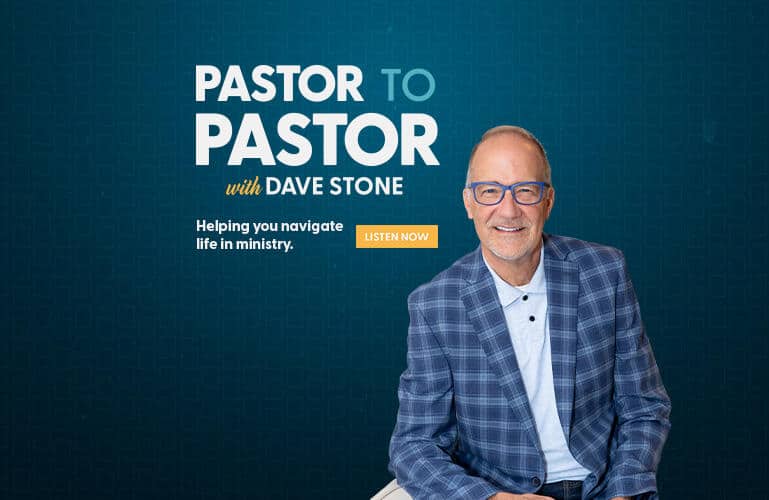How to Preach in a Post-truth World
Estimated reading time: 6 minutes
In my third year of college, I became convinced that I needed to know both the Bible and my culture if I was going to be an effective pastor in the 21st century. I began to see myself as a missionary to my own American culture who needed to prepare like I was going into a foreign land. I had to know the Bible, but I also had to know my postmodern culture to communicate the truth to my context.
Before going to seminary, I went to graduate school to study many foreign ideologies that shaped our modern world. This was invaluable for me as a pastor and has shaped my ministry.
Over the next couple weeks, I’ve been asked to do a short series on pastoring in a post-truth world. Obviously, much more could be said than I have space to write about here.
The commission
The content of our preaching in a post-truth world is identical to our preaching in a pro-truth world.
2 Timothy 4:2 admonishes pastors with sober, judgment-day gravity to preach God’s Word, the Bible—period! We must be equally eager to do this “in season” when truth is acceptable “and out of season” when truth is forbidden.
This should be done “by the open statement of the truth” as “we commend ourselves to everyone’s conscience” (2 Corinthians 4:2) regardless of the context we find ourselves in. That’s what Jesus did. That’s what His Apostles did, and that is what pastors in every age are expected to do.
Pastor, you have been commissioned by God for this (2 Corinthians 2:17).
God’s Word is truth (John 17:17). You may be in a context where truth is anticipated, demanded, and celebrated, or you may find yourself in a place where it’s invalidated, reprimanded, and denigrated—regardless, preach the Word!
If you do, it will go well for you and be well worth it when you give an account to the One “who is to judge the living and the dead” (2 Timothy 4:1; cf. 1 Corinthians 3:10-15).
The confrontation
Preaching God’s Word in a post-truth world means we’re preaching to people who not only live in that world, but have been infected by that world (we have been too!). Two important evidences of this are that many of the people listening to us each week don’t believe in truth (see The State of Theology study) and don’t know the Bible (see Barna poll).
As soon as someone uses language like ‘my truth,’ or denounces things like exclusivity or intolerance, we can be assured that we’re in for a clash of worldviews. Christianity—like all religions, in fact—claims to be true, that is, the one way to view reality accurately.
Jesus is the way, the truth, and the life (John 14:6). Christianity is reality. It correctly answers the fundamental questions we all deal with, like, Is there a God? Why is there something rather than nothing? What is a human being? Is there right and wrong, and what is it? What is the human problem? What is the solution? Is there purpose to reality? What is the goal of history?
Courage is necessary
So, do not hesitate to proclaim these truths boldly, even though many of the people you preach to live where 2+2=5, men can get pregnant, being spiritual is preferred to all religions, and feelings determine reality. What this means is, your preaching should have an edge to it.
I don’t mean that we should be harsh, sarcastic, or self-important. I mean, when we preach a positive truth (like, “Jesus is Lord”) we need to do the hard part and explain that with its opposite (e.g., “you are not lord,” “all other religious options are false,” etc.). When we say what we mean it helps people today when we include what we don’t mean. This is how we get in trouble, but it is also how we make open statements of truth in a post-truth world.
In other words, if you’re going to preach God’s Word at a time when it’s “out of season,” you need to embrace the inevitability of confrontation. We will not faithfully preach in a post-truth world and experience anything else. Refuse, and we will be “like so many, peddlers of God’s Word” instead of seeing people truly transformed because we are “the aroma of Christ to God among those who are being saved and among those who are perishing” (2 Corinthians 2:15, 17).
The confusion
In addition to not believing truth exists, many of the people listening to pastors each weekend don’t know the Bible. They may know the most famous aspects, but pastors should never assume their audiences have much Bible knowledge beyond the most basic.
I’ve found working with preachers as a coworker, a coach, and friend that we can think because a church is pro-truth they know truth. The result is, we can cause confusion or create an “Us vs You” environment in our sermons with things like “Christianese,” talking about ‘This well-known verse’ or ‘Remember in Genesis when…,’ using Greek and Hebrew terms, referring to famous Christians without introducing them, or beginning to quote a verse only to leave the last word off
for the congregation to finish it.
I’ve done all of that, especially that last one until I started noticing that when I’d pause for the people to say the last word in the verse, I’d only hear a voice or two, or maybe none at all! Most Christians don’t have a distinctly Christian worldview, let alone the insider knowledge “Christianese” assumes. They don’t know that well-known verse and don’t remember much of
anything in the Bible. They hear Charlie Brown’s teacher when we say Greek and Hebrew words, aren’t familiar with any so-called famous Christians (except maybe Billy Graham or Tim Tebow!), and a majority can barely even quote John 3:16.
The congregation
Now, I’m not saying any of that in judgment or as a wish for the good ol’ days. I’m saying that to help preachers understand the congregation they actually have in a post-truth world versus the one their sermons convey that they have.
The longer I’ve been a preacher, the more I try to craft the content of my sermons so my 12 and 10-year-olds can easily understand them. If they get it, the majority of the people in church that day will too.
That does not mean I dumb things down. I try to remember that I’m preaching to normal people, not seminary professors, who are usually there to be transformed, not informed. All of this also makes sure guests are cared for and not feeling like they don’t belong because they don’t know our language. Now, I do give some deeper stuff to the more knowledgeable in the audience to make sure I’m caring for them and keeping them engaged, but they’re never the target audience.
Some of us may think that we need to do things like drop a little Greek or Hebrew into our sermons to establish our credibility, but our credibility in a post-truth world depends on our relatability, not our credentials.
Pastor, work hard to talk like a normal person when you preach.
Conclusion
We can convey that we should be listened to by being clear, accurate, kind, real, passionate, and believable. That last one is critical today, I think. Do you actually believe what you’re saying? I don’t mean, “Are you a Christian?” I mean, “Do you think Christianity is true?” Does anyone listening to you say, “He believes this is true?” If you hesitate, if you hedge, everyone notices and you slit the throat of your preaching.
In the end, when the times are “out of season,” preachers must believe the truth and believe that the truth is true. If this is obvious to everyone listening to you and they can easily understand you, that’s powerful preaching in a post-truth world.
© 2025, Focus on the Family. All Rights reserved.
About The Author

Jon Benzinger
Jon Benzinger has been the lead Pastor and Elder at Redeemer Bible Church, in Gilbert, Arizona since 2015. He and his wife Katie have four kids. He is also the President of Redeemer Seminary, founder of HelpingPastors.org, and can be heard on the Redeeming Truth Podcast.










